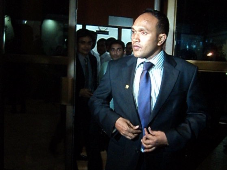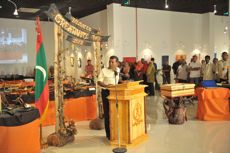When people think about democracy immediately the mind flies to voting, elections, free speaking and parliament discussions.
Is that all it takes to be a democracy? Honestly?
Democracy, in its essence is much more than that and the main principle lies on a balance between duties and rights of both the citizens and their elected government. What I often see in countries with little experience in the subject, is that the image of democracy is being biased by media reporting on other countries bad practice and surely heavily influenced by showing shouting, criticism and disagreement between different political parties. Democracy, I’m certain, goes beyond what we might see in news and films.
Democracy is a very old social practical concept and way of ruling, born in Greece, Athens, following a popular uprising in 508 BC, a country that ironically is on the verge of collapsing and filing for bankruptcy due to the mismanagement of their elected governments over the last 40 years, which underlines the responsibility not only of the Government but the people who elected the team in power.
Coming from the Greek words “dêmo” (people) and “kratos” (power), the concept is one of the most respectable and practical social structures man created to avoid repression, misery, starving, abuse, and give equal opportunities to man and women, thus allowing society to develop by helping their citizens to grow and achieve a better standard of life. Although the word has two elements in it, I have frequently the feeling that the word “dêmo” is forgotten and only “katros” (power) is retained in daily political practice.
So what takes a government to install a democracy in a country? Moving from an era of dictatorship, a one voice ruling system, to an open and free social structure is not an easy task and it’s not free from obstacles. A society based on legal, social, or ethical principles of freedom or entitlement, being those the fundamental normative rules, needs time to learn, time to practice and time to adapt.
I believe the Dhivehi people are very much today in such position and honestly any government in power (dêmo-katros) will not have an easy task. I am not praising nor defending your government here, surely there will be big mistakes like the airport handling to GMR, a fatal and nonsense approach to liberalism that Maldives will pay sooner or later, but experience shows that moving a country from a harsh past to a bright future will never be a popular task.
Maybe one of the best symbols of a consolidated democracy is when people stops saying “us and them” and just say “we” when talking about the elected team. I’m afraid Maldives is not yet there by the look of things.
Democracy brings along rules, duties and responsibilities that will neither be accepted easily nor quickly. Spain and Portugal first democratic governments know about that as both needed several decades to recover from 50 years of fascism and “throat slashing”, somehow thus being still today far away from other European countries.
As humans tend to resist changes, as it is somehow natural that people tend to go back to their comfort zone, thus the Maldives might see and suffer attempts to go back to the old ruling system (it happened in Spain the 23 February 1981 – six years after democracy was installed, a coup d’État took place by some generals of the army and a military assault of the parliament took place).
Obstacles will be several before the real democracy will be in place.
One thing certainly helps often a lot to speed up the process: the love the citizens and government have for their own country. Is this the case of Maldives? I really do not know. How deep and far do Maldivian love their country? I certainly I am not the one to answer the question.
Democracy at its beginning is risky if not closely surveyed due to the mentioned old behaviors insisting in coming back and ruling everybody’s life once more.
People think all is possible under a democracy including destroying the new system. In those situations the government has to be strong and not fall into the trap of patronising people, neither fearing their reactions, or the snake enchantments that the past will re-install.
An example of what I’m saying are the following historical facts: in 1981 Juan Carlos I, the King of Spain, solemnly declared in a clear and energetic way, during the coup d’État, that Spain would never go back to a fascist structure. The king’s firm position, was the most clear landmark the country could have in its path to democracy. Maldives might need a bit of the same, these days.
In today’s world, going back is not an option to be considered. So, does it means that the present government has to stay in power for ever? For another 30 years like the one before? I’m not the one to answer the question but the Maldivian people have something to say on the subject, I’m sure.
Democracy brings along respect for the law. A law based only in facts and equal rights and opportunities, being such mechanism a vital one to make people feel it is worth the change. Such a mandate, “one law for all”, has to be the first change to be made visible, thus fighting the old regime where law was equal to the interests of the ruler, often based on bribery and a system of favoring friends. Avoiding this will not be easily done but is crucial for the survival of democracy. If a government fails in this chapter, the failure will be massive.
Democracy means as well obedience. Armed forces are no longer the arm of persecution but the arm of law. That makes a big difference for a country. The same applies for judges.
The greatest difference, nevertheless, is that men and women are no longer just a labor force to serve a few, but are a vital resource in the country’s development and thus need to be treated as such.
That is the meaning of the word citizen, the soul of democracy. Universities, schools, opportunities and wellbeing for all, including the creation of jobs, are now THE priority, whereas in the past the priority was to fill the belly (if not the bank account) of the boss and his friends.
A real democracy never looks at the gender of its citizens, all deserve the same opportunities. In this sense, women have always had an important role in the family and community. In the early history of the Maldives, it was not uncommon to have a woman as a Sultana or ruler and it has been suggested that the society was once a matriarchy.
The Maldives is today writing a new social order, the step outline of its future. Once it will be written it will be the next generations that will judge. May Maldives become a very respectful country in the world.
Antonio V is a former teacher of the PF-IDEC University in Barcelona. He works as an adviser of management teams and is the coach of the High Management of the Catalan Police among other organisations. Antonio is a psychotherapist in the executive management area and former share holder of a business in the Maldives.
All comment pieces are the sole view of the author and do not reflect the editorial policy of Minivan News. If you would like to write an opinion piece, please send proposals to [email protected]


